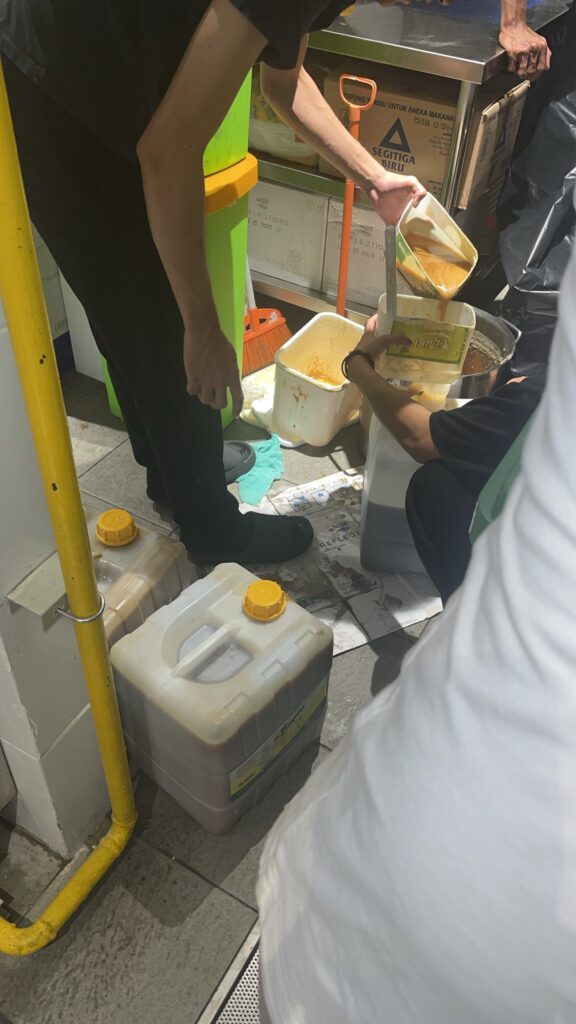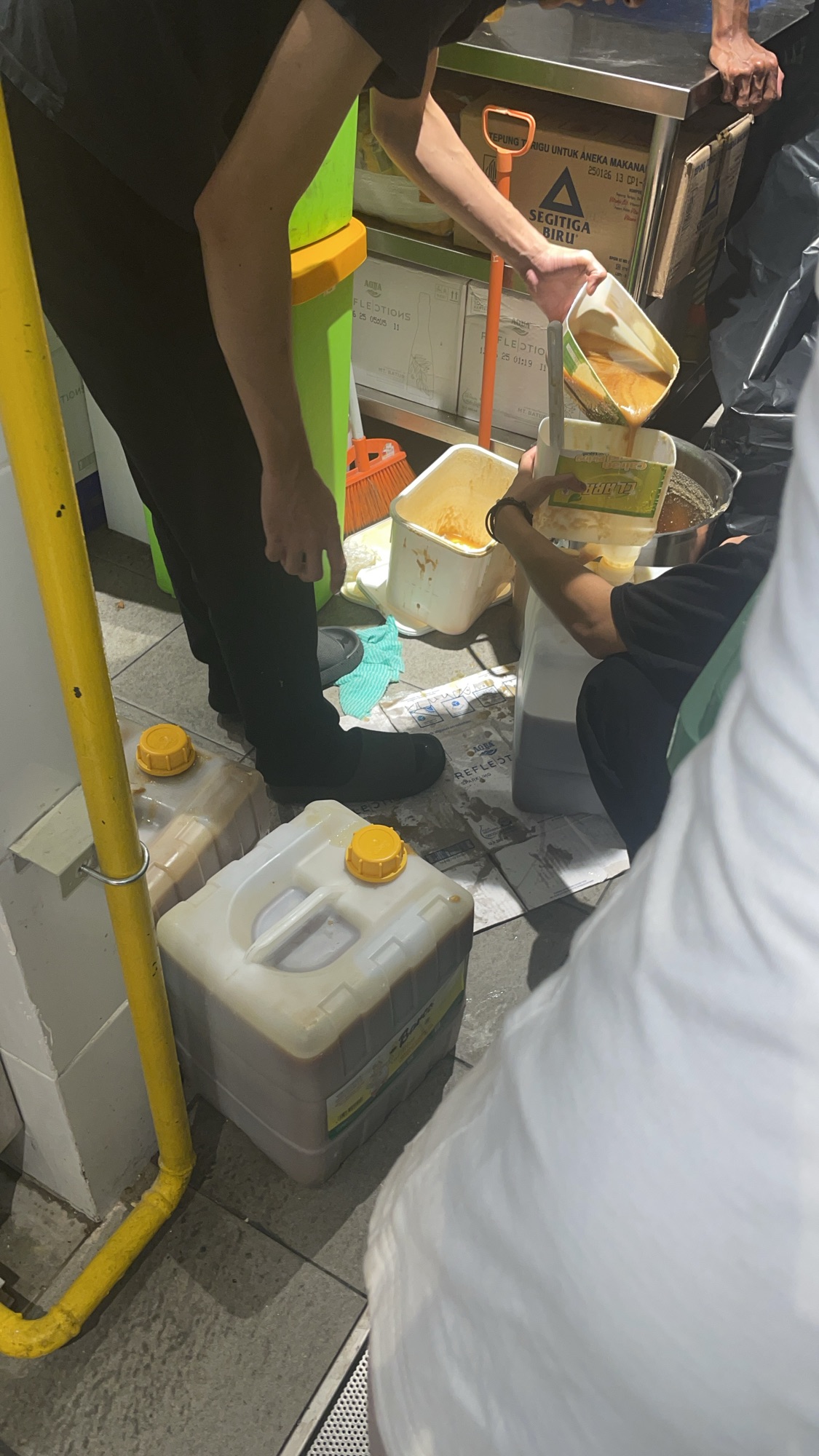Challenges and Strategies
Indonesia, with its vast culinary culture and large population, has enormous potential as a supplier of Used Cooking Oil (UCO) for biodiesel production. However, the cost of acquiring UCO in Indonesia has become a significant challenge. At around Rp13,000 per liter, the acquisition cost is much higher compared to other countries where prices can be as low as Rp6,000 per liter. This price disparity can be attributed to various factors, including the country’s infrastructure, cultural practices, and market dynamics. In this blog, we’ll explore these factors and discuss strategies to address this challenge, including blending UCO with Crude Palm Oil (CPO) or Palm Acid Oil (PAO)/Palm Oil Mill Effluent (POME).

Why is UCO Collection Cost So High in Indonesia?
- Infrastructure and Logistics:
- Geography: Indonesia’s archipelagic geography presents logistical challenges that drive up costs. Transporting UCO from remote islands to central processing facilities requires significant investment in infrastructure and fuel, making the collection process more expensive.
- Lack of Centralized Collection Systems: Unlike countries with advanced waste management systems, Indonesia’s UCO collection infrastructure is still developing. The lack of a centralized system means that UCO collection is often fragmented, with small-scale collectors operating independently. This fragmentation increases operational costs as the supply chain is less efficient.
- Cultural and Market Dynamics:
- High Demand for UCO: In Indonesia, UCO is not only used for biodiesel production but also for other purposes, such as animal feed or even illegal reuse in the food industry. This high demand keeps prices elevated.
- Cultural Practices: Many small-scale food vendors and households in Indonesia prefer to reuse cooking oil multiple times, reducing the quantity of UCO available for collection. This scarcity drives up the price for what little UCO is available.
- Community-Based Collection: In many regions, UCO collection is community-based, with local groups or cooperatives managing the process. While this can empower communities, it can also lead to higher costs as these groups set prices based on local demand and supply conditions.
Strategies to Address High UCO Acquisition Costs
To remain competitive and ensure a steady supply of UCO for biodiesel production, companies like PT. Tuang Bio Energi must adopt innovative strategies. One effective approach is to blend UCO with other oils, such as Crude Palm Oil (CPO) or Palm Acid Oil (PAO)/Palm Oil Mill Effluent (POME).
- Blending UCO with CPO:
- Cost Efficiency: Blending UCO with CPO can help lower overall costs. CPO is abundantly available in Indonesia, and its price is relatively stable. By mixing it with UCO, companies can reduce the impact of high UCO acquisition costs while maintaining the quality of the biodiesel produced.
- Enhanced Stability: CPO can enhance the oxidative stability of biodiesel, improving its shelf life and performance, especially in warmer climates like Indonesia’s.
- Using PAO/POME:
- Sustainable Sourcing: PAO and POME are byproducts of palm oil production. Incorporating these into biodiesel production not only lowers costs but also aligns with sustainability goals by utilizing waste materials.
- Economic Viability: Since PAO and POME are byproducts, their cost is generally lower than pure UCO. Blending these with UCO can create a cost-effective feedstock that remains competitive in the market.
- Regulatory Compliance: Blending UCO with PAO/POME is often supported by regulatory frameworks aimed at promoting the use of waste products in renewable energy. This can provide additional financial incentives or tax benefits.
Implementing the Strategy
At PT. Tuang Bio Energi, we are actively exploring and implementing these blending strategies to ensure that we can continue to offer competitive pricing while maintaining high standards of sustainability and product quality. Our approach includes:
- Partnerships with Palm Oil Producers: By partnering with palm oil producers, we secure a stable supply of CPO, PAO, and POME, allowing us to blend these with UCO efficiently.
- Investment in Technology: We are investing in advanced processing technologies that enable us to blend UCO with other oils seamlessly, ensuring that the final product meets both international quality standards and ISCC EU certification requirements.
- Community Engagement: We work closely with local communities and cooperatives to streamline the UCO collection process, offering fair prices while also educating suppliers about the benefits of sustainable practices.
Looking Ahead
The high cost of UCO collection in Indonesia presents challenges, but it also drives innovation. By adopting a strategy that includes blending UCO with CPO and PAO/POME, PT. Tuang Bio Energi is not only addressing these challenges but also contributing to the broader goals of sustainability and energy security in Southeast Asia.
In our next post, we’ll explore the impact of these strategies on Indonesia’s biodiesel industry and how they position the country as a leader in sustainable energy production. Stay tuned as we continue to chart the future of green energy in Indonesia.
Contact Tuang Bio Energi
Website: www.tuang.co.id
Phone: 021-30620136
Email: [email protected]
Whether you’re a biodiesel producer or a UCO supplier, we invite you to join us in our mission to drive Southeast Asia’s transition to green energy. Together, we can overcome challenges and create a more sustainable future for all.


Leave a Reply